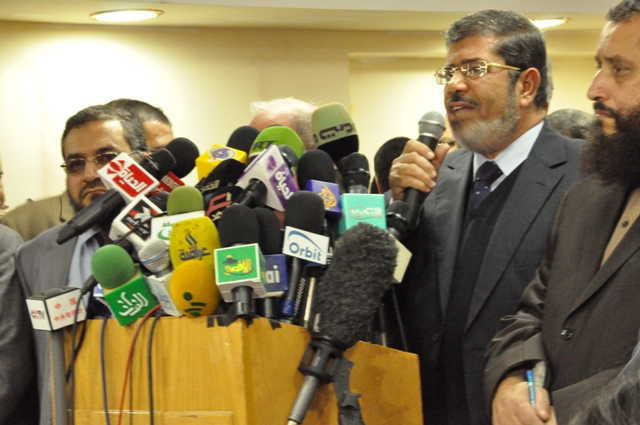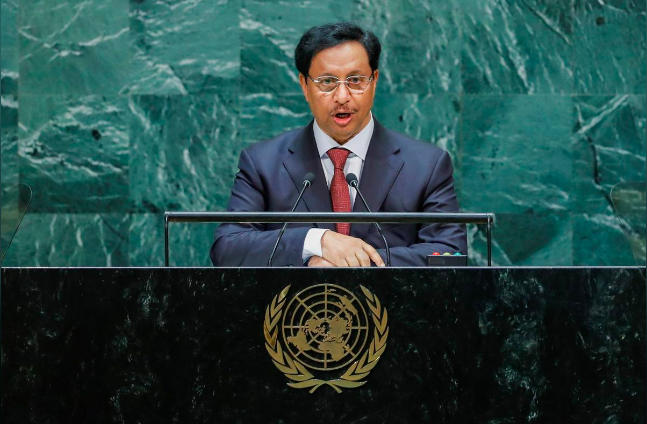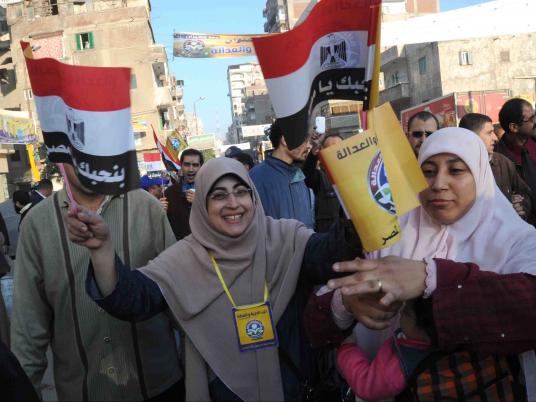
The Freedom and Justice Party launched another sharp attack on Prime Minister Kamal al-Ganzouri’s cabinet, demanding its resignation or for the Supreme Council of the Armed Forces to force it to step down if it fails to do so voluntarily.
“Kamal al-Ganzouri addressed the MPs with two statements — the first was an improvised statement before the People’s Assembly, and a few days later he sent us a written statement to Parliament," said the head of the party's parliamentary bloc, Hussein Ibrahim, during a Thursday press conference at the FJP headquarters.
“We reject both statements. Nineteen People’s Assembly committees rejected them, as did all parliamentary bodies with the exception of the bodies which include the Freedom, Ittihad (Union) and Egyptian Citizen parties,” he said. All three parties are associated with the formerly-ruling National Democratic Party.
Ibrahim said all options were on the table for the FJP, including taking to the streets if the Ganzouri cabinet does not resign. He said he expects the SCAF to respond to calls for democracy and sack the current cabinet, and that if it fails to do so, the FJP plans to call ministers in for questioning before Parliament.
Ibrahim went on to say that the Constitutional Declaration legitimized Parliament, giving it the right to monitor the cabinet’s performance and to withdraw confidence. He said he expected discussions about the government’s performance to end by next week.
Ibrahim said the FJP will not accept a new government that serves as nothing more than a “secretariat” and will form a government with complete authorities.
During the press conference, Osama Yassin, the FJP’s assistant secretary and chairman of the People’s Assembly Youth Committee, said the SCAF is responsible for the crises as “it formed this government.”
Defending the military-run government, state-owned Al-Ahram newspaper said the government had issued over 100 major decisions that were needed to complete the country's critical transition stage, and a number of decisions targeted low-income citizens in order to improve their standard of living.
Al-Ahram said important measures have included reducing public spending from the state budget by nearly LE20 billion without affecting low-income families, taking necessary and immediate monetary and fiscal measures to stop the decline in foreign cash reserves, maintaining the value of the Egyptian pound against foreign currencies and preserving its value despite the dramatic decline in cash reserves, and reducing subsidized petroleum products for high-energy utilizing industries.
Translated from Al-Masry Al-Youm




